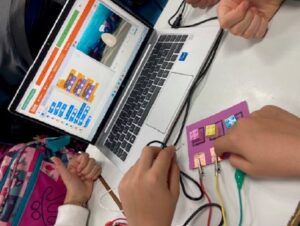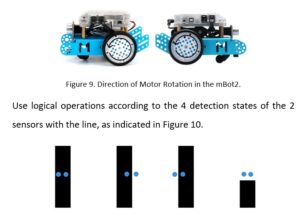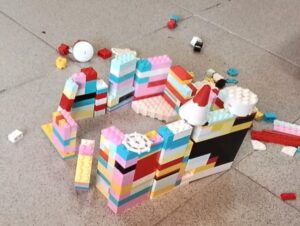
Multiples calculator
The “Multiples Calculator” activity combines mathematical concepts with programming using circuit boards, electrical circuits, and their connections. This activity is designed for students aged 10 and above, specifically those in the third cycle of Primary Education, starting from 5th grade. It is planned to be carried out over three 1-hour sessions. The activity can be done in a regular classroom, provided there are tablets or laptops available, or in a computer lab.



